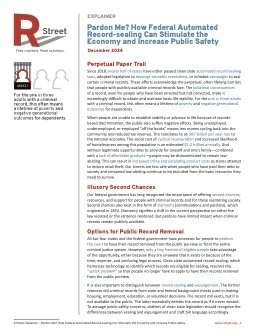By Christi M. Smith
Since 2018, nearly half of states have either passed clean slate automated record-sealing laws, adopted legislation to expunge cannabis convictions, or initiated campaigns to seal certain criminal records. These efforts acknowledge the perpetual, often lifelong barriers that people with publicly available criminal records face. The collateral consequences of a record, even for people who have been arrested but not convicted, make it exceedingly difficult to obtain and maintain basic life stability. For the one in three adults with a criminal record, this often means a lifetime of poverty and negative generational outcomes for dependents.
When people are unable to establish stability or advance in life because of records-based discrimination, the public also suffers negative effects. Being unemployed, underemployed, or employed “off the books” means less money cycling back into the community and reduced tax revenue. This translates to an $87 billion per year loss to the national economy. The social cost of cyclical incarceration and increased likelihood of homelessness among this population is an estimated $1.2 trillion annually. And without legitimate opportunities to provide for oneself and one’s family—combined with a lack of affordable products—people may be disincentivized to remain law-abiding. This can result in increased crime and escalating product costs as stores attempt to reduce retail theft. Our streets are less safe when people who have paid their debt to society and remained law-abiding continue to be excluded from the basic resources they need to survive.
Explainer, Washington, DC: R Street, 2024. 2p.



